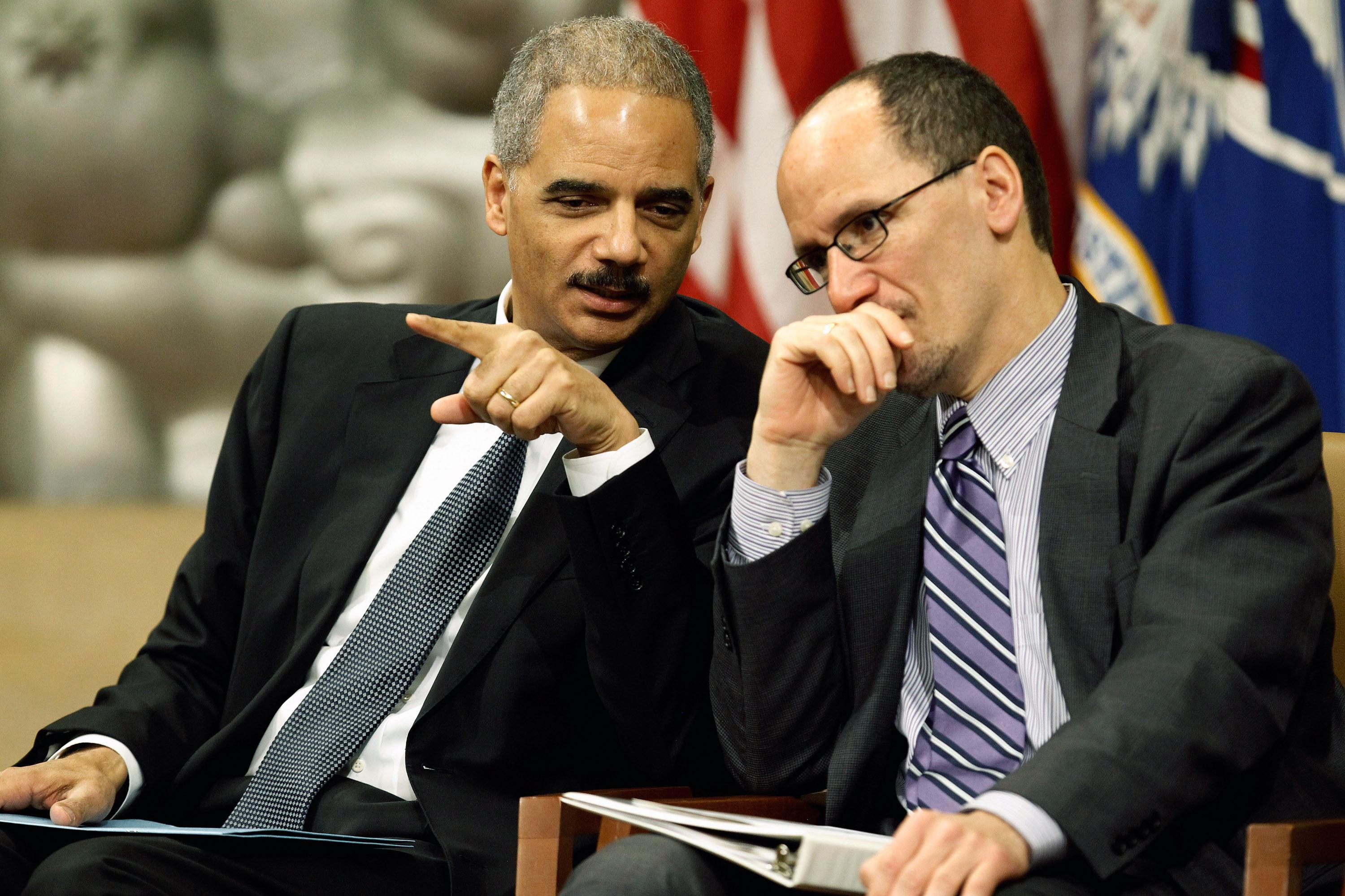Remember my rule of headlines: If they end in question marks, they can be answered in the negative.
Yesterday I wrote about Fox News revivifying an attack on Tom Perez, currently the head of DOJ’s Civil Rights Division, probably the nominee to run the Department of Labor. Fox News’ Megyn Kelly claimed that Perez might have “lied” to the U.S. Civil Rights Commission about the dismissal of the New Black Panther voter intimidation case. Perez, who wasn’t at DOJ when the case was dropped, said that career appointees, not political appointees, made the call. The evidence, I wrote, suggested that he told the truth. Perez’s critics say he misled. There were political appointees involved in the decision: Associate Attorney General Thomas Perrelli and Deputy Associate Attorney General Samuel Hirsch.
Today, we see a new Inspector General report on DOJ, digging into all of the Obama-era charges of bias in the Civil Rights Division. It concludes that “the perception that political or ideological considerations have affected important administrative and enforcement decisions there” has basis in fact.
But it doesn’t implicate Perez the way Fox News tried to. The specific accusation, in that story, was that Obama appointees overruled non-political appointees and snuffed out the New Black Panther case. The IG finds that the case was dropped by career lawyers, Steven Rosenbaum and Loretta King. In December 2008, Bush-era Voting Section Chief Christopher Coates sent a “J-memo” about the case and the accusations, made by Republican poll watchers, of New Black Panthers making threatening statements.
When Rosenbaum questioned the basis for the allegation made in the J-Memo and the complaint that [Jerry] Jackson had made racially threatening statements, he discovered that it was lacking. This discovery, which occurred shortly before a decision had to be made on the motion for a default judgment, and which was on top of the earlier discovery regarding the website disclaimer, led Rosenbaum and King to question the accuracy of the case team’s representations despite the fact that objective evidence was available against Jackson on video and the fact that Jackson was a defendant who had already defaulted. The result, we believe, was a last minute decision to dismiss the charges against Jackson.
And so, at a meeting with Perrelli and Hirsch, “Rosenbaum described the NBPP matter and the upcoming deadline, and stated that he had concerns about liability and relief. According to Hirsch, Rosenbaum or King stated that the case was ‘so extraordinarily weak that it never should have been filed in the first place.’” In an email that day, Rosenbaum reiterated that the case was weak: “According to the videos, the defendant with the nightstick was at the polling place for only an hour and then left when the police asked him to leave.”
When the IG caught up with Perez, “he was not previously aware of these instances of participation by political appointees.”
However, Perez stated that these incidents were not inconsistent with his testimony to the Commission. He stated that the context of his testimony was responding to allegations that political appointees had exercised “undue influence” or “put a thumb on the scales of justice” during deliberations over the NBPP matter, and that these incidents did not reflect conduct of that type. Perez stated that these incidents were not involvement in the decision to dismiss three defendants and limit the injunction, because King made the decision in consultation with Rosenbaum and it was not changed by Hirsch or Perrelli.
There’s nothing in the report to contradict this.
